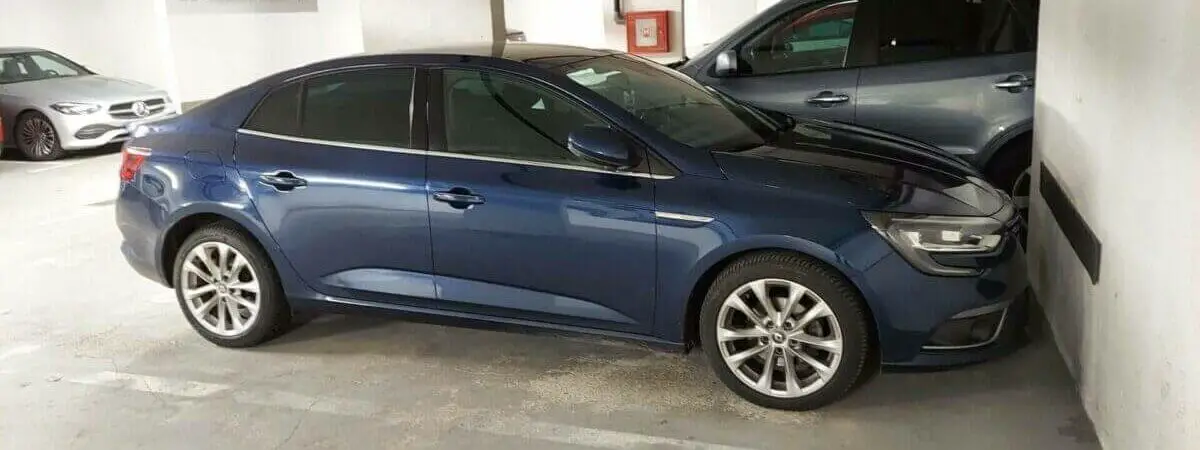Importing a car into Croatia isn’t difficult, but people tend to fear Croatian bureaucracy. Before you can start the process of importing a car, you’ll need a residence permit. It can be either a long-term residence permit or a permit of temporary stay like the digital nomad visa. You can also only register the car for as long as your residence permit is valid.
There are also slight differences if you purchase the car specifically to import into Croatia or if you’re bringing a car you already own. This post will focus on the first option – cars purchased explicitly for import since that’s what I did. I will go into more details below, but the process is as follows:
- Homologacija (homologation process)
- Pay import taxes
- Technical inspection
- Buy car insurance
- Registration
The nice part about this process is that the homologacija, technical inspection, registration, and car insurance all happen at the same office.
If you are importing a car you own, give Expat in Croatia’s post “How to import your car and belongings into Croatia” a read.
Why you shouldn’t buy a car in Croatia
Ok, sorry for the clickbaity title, but there are a few reasons why buying a car outside Croatia is better. The main reason I got my car in Germany was that there were literally 5 automatic cars in my budget available in Zagreb. I’m an American and can only drive an automatic transmission (lol), so if you know how to drive a manual transmission, you’ll have better luck on the used market in Croatia. The best place to look for a used car in Croatia is Njuskalo, so check it out before you decide. You can use mobile.de, the best auto market in Germany, to compare prices and availability.
Cars in Croatia also tend to be maintained worse than cars in, say, Germany. I mean this regarding the number of kilometers on the odometer and the service history. You should also know that tampering with the odometer is more common in Croatia than in neighboring countries. You can check this by doing a carVertical history check. You should do this regardless of where you buy your car, though.
And the last reason for me was that it saved me around $1500 after the cost of importing the car. $1500 that I used to fund my fun road trip through Berlin, Prague, and Vienna on the way back to Zagreb. I purchased my car on Driverama. It’s a service like Carvana. The best part was that they helped me register it for export which we will cover next.
Register car for export (if purchased abroad)
This is the first step toward being able to drive your car back to Croatia. When I did it in Germany, it was at “Kfz-Zulassungsstelle” which is basically the office dealing with auto tags. For me, they did their check and billed me €45, and I believe this is a flat fee.
After that, I had to pay for the temporary plates and insurance. There were two options. I could pay €120 for two weeks or €140 for 4 weeks. I opted for 4 weeks to allow me time to navigate Croatia’s bureaucracy. With the help of the dealer I purchased my car from, it took around 5 hours to complete. This was partly because the place was busy, and they had just gotten rid of the covid policy where some of the process could be done online.
Homologacija (Homologation Process)
Once you get back to Croatia, the first thing you’ll need to do is the “homologacija”. This process ensures that your car matches the factory specifications and costs €82.95. You can find the closest testing site on HRK.hr. The process should take an hour or two if you have the required documents. The things you need to bring are:
- The car
- Vehicle license
- Your passport & driver’s license
- Original certificate of conformity (see below if you don’t have it)
Side note, make sure that whoever sells you the car also includes a Certificate of Conformity. Otherwise, you’ll need to pay €53 to get one issued in Croatia. You can find where to request that on the HAK.hr. Just find the manufacturer of your car and send them an email. It’ll take about 3-5 days to have it reissued.
Pay the import taxes
When you complete the homologacija, it’ll be time to pay the import taxes. I recommend you ask the office where you did the homologacija where you need to go to pay the taxes since it’s pretty confusing to figure out.
There are 3 possible taxes you’ll have to pay:
- Customs tax (carina)
- Value-added tax (PDV)
- Acquisition tax (trošarina)
But as long as you purchase the car in the EU, you’ll only have to pay the acquisition tax (trošarina in Croatian). The customs office has a good calculator that you can use to estimate this. It’s determined by the vehicle’s age, type, purchase price, emissions, and fuel type.
When you get to the customs office, they’ll give you a form to fill out. The documents you’ll need are:
- Your passport
- Driver’s license
- Vehicle’s license
- Homologacija
- Bill of sale confirming how much you paid
- The completed customs office form
They will then evaluate everything you’ve given them and calculate the taxes you need to pay. This will take 2-3 days, and once you pay, you can pick up the form confirming you paid the customs taxes and move on to the next step.
Technical inspection
This part is simple. You head back to where you did the homologacija, show them you paid the import taxes, and pay the inspection fee. I highly recommend you go around 9:00 am. From my experience, this is when the line is the shortest.
Buy local insurance
Croatia has a compulsory insurance requirement to register a car. It’s similar to liability coverage in the US, costing around €250/yr. I upgraded my insurance to coverage just in case, which cost about €750/yr. I also went with Adriatic Insurance because it was inside the same office where I did the homologacija and technical inspection. However, I did look into Allianz and PBZ insurance. They all had similar prices, but I encourage you to shop around since they offer other perks like roadside assistance.
Register your car and get Croatian plates
Once you’ve done the technical inspection and got an insurance policy, you just need to pay two more fees to register your car and get your plates. The fee depends on your car, but for mine (a 2017 Renault Megane), it was €120, plus €15 for the plates. You’ll need to bring:
- Your passport
- Your residence permit
- A bill of sale proving you own the car
- Proof you paid any required import taxes
- A technical inspection
- Compulsory car insurance policy
That’s all there is to importing a car to Croatia. Once you’ve got the registration in hand, you’re all set.
Thinking about moving to Croatia?
Whether you’ve been to Croatia before or not, there are some things you should know before you move. In this post, I cover 18 things you should know about living Croatia before you move.

